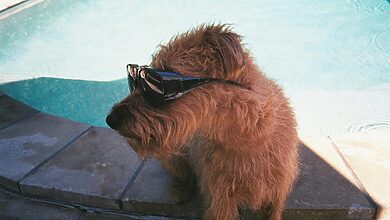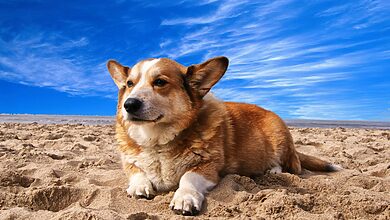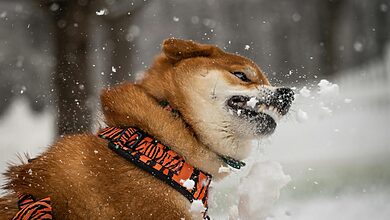Puppy Socialization: Building Confidence and Friendships
When you bring a new puppy into your home, you embark on a journey filled with adorable moments, joyful play, and, of course, the occasional chewed shoe. But beyond the cuteness, there’s an essential aspect of puppyhood that often gets overlooked: socialization. In this guide, we’ll delve deep into the art of socializing your puppy, helping you understand its importance, offering practical tips, and steering you clear of common pitfalls.
Table of contents
Understanding Puppy Socialization
What is Puppy Socialization?
Puppy socialization isn’t just about playdates and meeting other dogs. It’s a structured process of exposing your furry friend to a variety of experiences, people, animals, and environments while ensuring these encounters are positive and controlled. This crucial phase sets the foundation for your puppy’s emotional and behavioral development.
Why is Puppy Socialization Important?
The benefits of puppy socialization are extensive:
- Building Confidence: By navigating new situations, puppies become more self-assured and less prone to anxiety.
- Learning Good Behavior: Interaction with diverse individuals and animals helps puppies grasp appropriate behaviors and boundaries.
- Preventing Fear and Aggression: Early socialization reduces the risk of fear-based aggression in adulthood.
- Fostering Healthy Relationships: Well-socialized dogs tend to have smoother interactions with both humans and other animals.
Socializing your Puppy Tips
Embarking on successful puppy socialization requires careful planning and consistent effort. Here’s your roadmap:
Start Early
Socialization begins as early as possible. The prime window for effective socialization is typically between 3 and 14 weeks of age. This is when puppies are most receptive to new experiences.
Gradual Exposure
Introduce your puppy to novel experiences incrementally. Overwhelming them with too much too soon can backfire.
Positive Reinforcement
Utilize positive reinforcement techniques such as treats, praise, and affection to reward your puppy’s good behavior during socialization. This reinforces positive associations with new experiences.
Variety is Key
Expose your puppy to a wide range of stimuli: different people (children, older people, men, and women), animals (dogs, cats, rabbits), environments (urban, rural, indoors, outdoors), sounds, and surfaces.
Puppy Socialization Classes
Enroll in a reputable puppy socialization class. These classes provide structured and controlled environments for puppies to interact safely.
Supervision
Always supervise your puppy during socialization activities. Your presence provides security and ensures everyone’s safety.
Patience and Consistency
Remember, socialization is an ongoing process. Be patient with your puppy, stay consistent in your approach, and maintain a positive attitude.
Puppy Socialization Mistakes to Avoid
Steer clear of these common blunders that can hinder your puppy’s socialization journey:
Waiting Too Long
Delaying socialization until your puppy is older can make it more challenging for them to adapt to new experiences.
Negative Experiences
Avoid exposing your puppy to traumatic or negative events. Socialization should always be positive and free from fear or distress.
Skipping Socialization
Neglecting socialization entirely can lead to behavioral problems down the road.
Tailoring Socialization to Your Puppy’s Needs
Each puppy is unique, and some may have special requirements during the socialization process:
Puppies with Separation Anxiety
For puppies prone to separation anxiety, gradually introduce them to short periods of separation during socialization to build their confidence.
Reactive Puppies
If you have a reactive puppy (one that exhibits aggressive behavior towards people or animals), seek guidance from a trainer experienced in behavior modification. They can help you create safe socialization experiences.
Puppy Socialization Activities
Here are some engaging activities to facilitate socialization:
- Puppy Playdates: Organize playdates with other well-vaccinated and friendly puppies to encourage healthy social interactions.
- Puppy Classes: Enroll in puppy training and socialization classes offered by professional trainers who specialize in positive reinforcement techniques.
- Visits to New Places: Take your puppy to pet-friendly stores, parks, and outdoor events to expose them to different environments and people.
- Meeting People: Encourage your puppy to meet a variety of individuals, including children, older people, men, and women, to ensure they’re comfortable around different personalities.
- Exposure to Sounds: Play recordings of various sounds, such as thunderstorms or traffic, to familiarize your puppy with noises they might encounter during their lifetime.
Socializing your puppy is not just a box to check; it’s an essential part of raising a confident, friendly, and well-behaved adult dog. By providing positive experiences and thoughtfully introducing your puppy to the world around them, you’re equipping them with the life skills and friendships that will last a lifetime. Remember, socialization is an ongoing adventure, so continue to introduce your puppy to new experiences and environments as they grow, ensuring a happy and harmonious life together.








